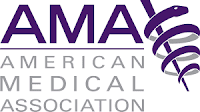The AMA was asked by legalization activists to revisit its decades-long opposition to legalizing assisted suicide, specifically, to distinguish between suicide and the the euthanasia movement’s favorite euphemism, “aid in dying.”
Big mistake. The Ethics Committee reiterated its opposition to legalization in full, with some wisdom worth recounting here.
First, the AMA rejects the nonsense that assisted suicide somehow isn’t suicide. From “Report of the Council on ethical and Judicial Affairs,” CEJS Report 5-A-18 (my emphasis):
Big mistake. The Ethics Committee reiterated its opposition to legalization in full, with some wisdom worth recounting here.
First, the AMA rejects the nonsense that assisted suicide somehow isn’t suicide. From “Report of the Council on ethical and Judicial Affairs,” CEJS Report 5-A-18 (my emphasis):
The council recognizes that choosing one term of art over others can carry multiple, and not always intended messages. However, in the absence of a perfect option, CEJA believes ethical deliberation and debate is best served by using plainly descriptive language.Exactly what I have been saying. But I digress:
In the council’s view, despite its negative connotations, the term “physician assisted suicide” describes the practice with the greatest precision. Most importantly, it clearly distinguishes the practice from euthanasia. The terms “aid in dying” or “death with dignity” could be used to describe either euthanasia or palliative/ hospice care at the end of life and this degree of ambiguity is unacceptable for providing ethical guidance.Yes! But of course, those are the very reasons activists want to use the term.
The opinion also notes that the “guidelines will prevent abuse” meme hasn’t exactly worked in Netherlands and Belgium:
The report shows that oversight in Netherlands tends to be a rubber-stamp affair, which I assert also happens in Oregon.
The report concludes:
Although cross-cultural comparisons are problematic, current evidence from Europe present a cautionary tale. Recent findings from studies in Belgium and the Netherlands, both countries that permit euthanasia as well as physician-assisted suicide, mitigate some fears but underscore others. For example, research in the Netherlands has found that “requests characterized by psychological as opposed to physical suffering were more likely to be rejected…At the same time, however, among patients who obtained euthanasia or assisted suicide, nearly 4 percent “reported only psychological suffering.”That may be old news. Recently published data show that more than 80 mentally ill patients were euthanized in 2017 in the Netherlands, which happens in Belgium too.
The report shows that oversight in Netherlands tends to be a rubber-stamp affair, which I assert also happens in Oregon.
Studies have also raised questions about how effective retrospective review of decisions to provide euthanasia/assisted suicide is in policing practice. A qualitative analysis of cases that Dutch regional euthanasia committees determined had not met legal “due care criteria” found that such reviews focus on procedural considerations and do not “directly assess the actual eligibility” of the patients who obtained euthanasia.
A separate study of cases in which psychiatric patients obtained euthanasia found that physicians’ reports “stated that psychosis or depression did or did not affect capacity but provided little explanation regarding their judgments” and that review committees “generally accepted the judgment of the physician performing EAS [euthanasia or physician-assisted suicide]” .The report notes that quality end-of-life care is unequally available in the country, and is a particular problem for poor populations.
The report concludes:
After careful consideration, CEJA concludes that in its current form the Code offers guidance to support physicians and the patients they serve in making well-considered, mutually respectful decisions about legally available options for care at the end of life in the intimacy of a patient-physician relationship. The Council on Ethical and Judicial Affairs therefore recommends that the Code of Medical Ethics not be amended.Good. A doctor’s role is to heal, palliate, counsel, and treat. It should never be to help kill.



4 comments:
Thank God!!!
Excellent synopsis, and kudos to the AMA for holding the line against PAS!
Ron Pies, MD
Lorraine Faherty said: It would be helpful, if more associations (Professional and Pro Life) were to publicly have the courage to stand up to this perfidious attack on Human Life. As it is, we rely on individuals to
Very glad that medical professionals here in the United States are not repeating the disasters that their colleagues in other countries are experiencing. Besides that, since the US has abortion legal throughout the nine months of pregnancy for any reason whatsoever, our doctors must realize the seriousness of the slippery slope which moves from killing one group of human beings to another group.
Post a Comment